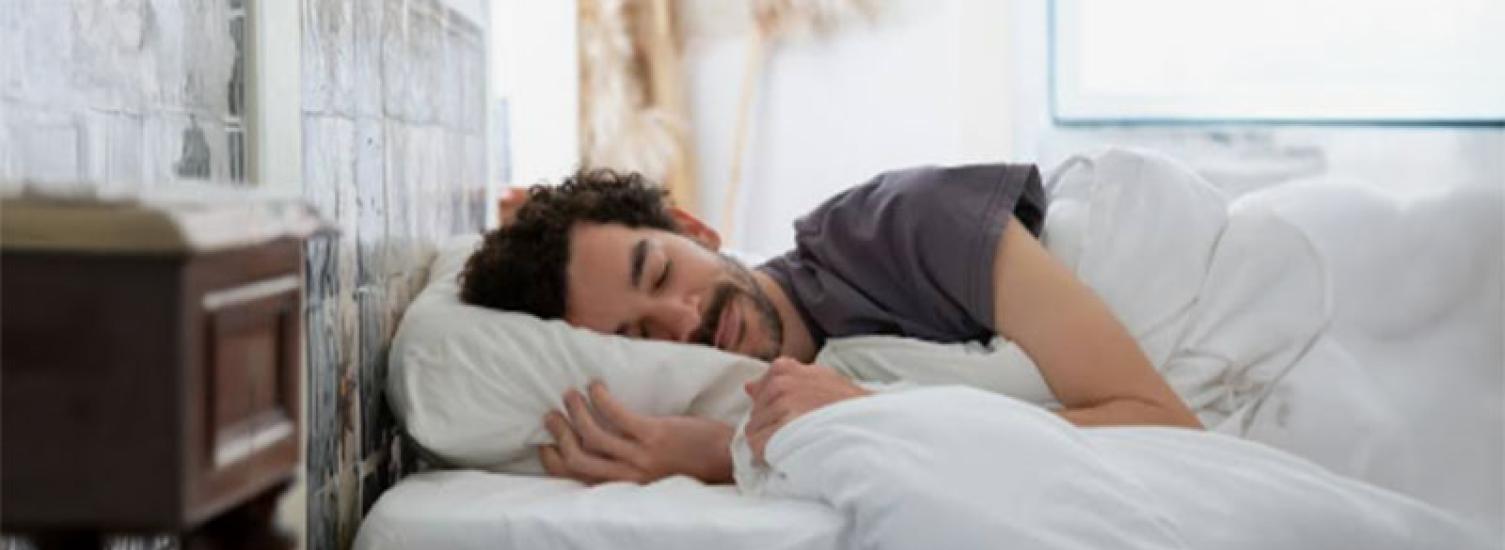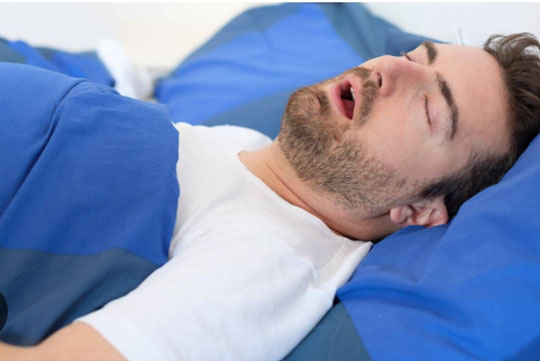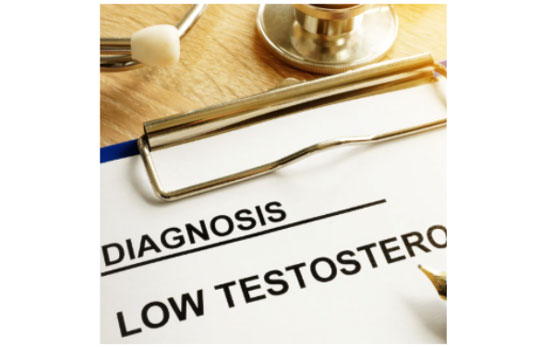
Sleep is meant to be a sanctuary, a time when your body repairs itself and your mind recharges for the challenges ahead. Yet, for countless men, nighttime brings anything but peace. Instead, it's a battleground of interrupted breathing, sudden awakenings, and a lingering exhaustion that no amount of coffee can shake off the next day. This isn't just poor sleep—it's often the hallmark of a deeper issue known as the "Low T Loop," where sleep apnea and testosterone deficiency intertwine in a destructive dance, each exacerbating the other and eroding overall well-being.
Imagine waking up feeling more drained than when you went to bed, struggling through the day with foggy thoughts and irritability. If this resonates, you're not alone and there’s hope. In this comprehensive guide, we'll delve into the sleep apnea low testosterone link, uncover why conventional fixes might not cut it, and explore how targeted hormone optimization through testosterone replacement therapy (TRT) could be the key to reclaiming restful nights and vibrant days. As leaders in telehealth testosterone replacement therapy services, HRT Doctor is dedicated to helping men like you break free. Whether you're searching for a TRT doctor near you or seeking insights on TRT for sleep apnea, our expertise in hormone balance can guide you toward lasting relief. Ready to start? Schedule now and reclaim your sleep.
What Is Sleep Apnea?
Sleep apnea is far more than occasional snoring—it's a pervasive sleep disorder that disrupts breathing patterns repeatedly throughout the night. The dominant type, obstructive sleep apnea (OSA), happens when the throat muscles relax too much, causing the airway to collapse and block airflow. These breathing pauses can endure from mere seconds to well over a minute, repeating dozens or even hundreds of times nightly, often without the sleeper's full awareness.

Men experiencing this condition frequently report loud, disruptive snoring that echoes through the household, accompanied by episodes of gasping or choking as the body jolts itself awake to resume breathing. Come morning, headaches pound as a reminder of the oxygen-starved night, while daytime fatigue drags on like an unwelcome shadow. Concentration wanes, leading to forgetfulness or errors at work, and mood swings can strain relationships. Beyond these daily tolls, sleep apnea poses grave risks, including heightened chances of heart disease, stroke, diabetes due to insulin resistance, and even cognitive impairments like memory loss over time.
Recent studies highlight that untreated sleep apnea affects up to 25 million adults in the U.S. alone, with men being twice as likely as women to develop it, often due to anatomical factors like larger neck circumferences or hormonal influences. Ignoring it isn't an option—it's a silent saboteur of health that demands attention.
The Sleep Apnea Low Testosterone Link
Diving deeper, the connection between sleep apnea and low testosterone isn't mere coincidence; it's backed by robust scientific evidence showing a bidirectional relationship that amplifies both issues. Research reveals that men with moderate to severe OSA frequently exhibit testosterone levels significantly below normal ranges compared to those without the disorder. For instance, a systematic review and meta-analysis published in Andrology confirmed that OSA patients, particularly those with severe cases (measured by high Apnea-Hypopnea Index or AHI scores), have markedly lower serum testosterone, with the effect persisting even after adjusting for age and body mass index (BMI).
This sleep apnea low testosterone link stems from multiple mechanisms. First, testosterone production surges during deep REM sleep stages, especially in the pre-dawn hours. However, OSA fragments sleep, preventing sustained REM cycles and thus hampering hormone synthesis. Patients with OSA experience reduced REM time, more awakenings, and lower sleep efficiency, all correlating with diminished testosterone. Additionally, the intermittent hypoxia—drops in blood oxygen during apneas—stresses the body, disrupting the hypothalamic-pituitary-gonadal (HPG) axis, the critical pathway for testosterone generation.
Inflammation plays a villainous role too. OSA triggers widespread inflammation and spikes in cortisol, the stress hormone, which directly suppresses testosterone while perpetuating restless sleep. Obesity, a common companion to OSA, further complicates matters by converting testosterone into estrogen via fat tissue, lowering available T levels. Studies indicate that factors like AHI, oxygen desaturation index, and obesity severity are strong predictors of this hormonal dip in middle-aged men.
Consider John, a fictional but representative 52-year-old executive: Years of undiagnosed OSA left him with chronic fatigue and unexplained weight gain. Blood tests revealed his testosterone at rock bottom, fueling a cycle of worsening symptoms. Stories like his underscore why addressing the sleep apnea low testosterone link is essential for holistic health.
Testosterone and Restless Sleep: Fueling the Vicious Cycle
The interplay doesn't stop at sleep apnea causing low T—low testosterone reciprocates by intensifying restless sleep and apnea symptoms, creating a self-reinforcing loop. Testosterone is vital for maintaining muscle tone throughout the body, including the upper airway muscles that prevent collapse during sleep. When T levels plummet, these muscles weaken, heightening the risk of obstructions and more frequent apneas.
Moreover, low testosterone promotes weight gain, particularly visceral fat around the abdomen and neck, which narrows airways and increases chest pressure, exacerbating OSA. This fat redistribution isn't random; it's hormonally driven, turning a minor issue into a major barrier to restful nights. Emotionally, low T breeds depression, anxiety, and irritability, all of which disrupt sleep patterns, leading to insomnia or frequent awakenings even without full apneas.
Research supports this: Older men with low T show decreased sleep efficiency and more nighttime disturbances. In one cohort study, low testosterone correlated with reduced deep sleep, a phase crucial for physical restoration. Breaking this cycle of testosterone and restless sleep requires intervention that targets both ends, not just one.
TRT for Sleep Apnea: A Promising yet Nuanced Solution
Testosterone replacement therapy (TRT) has revolutionized treatment for low T, alleviating fatigue, boosting libido, preserving muscle, and stabilizing mood. But what about TRT for sleep apnea? The topic sparks debate, with early studies suggesting high-dose TRT might worsen airway resistance in untreated cases. However, modern research paints a more optimistic picture: When dosed appropriately and monitored, TRT can enhance sleep quality and potentially mitigate apnea severity.
Benefits abound. TRT bolsters muscle tone in the throat, reducing collapse risks. It also aids fat loss and better distribution, easing pressure on airways. Mood improvements from TRT foster better sleep hygiene, curbing behaviors that worsen restless sleep.
TRT Doctor Near Me: Your Path to Expert Care
If symptoms of sleep apnea and low T plague you, searching for a "TRT doctor near me" is a smart move—but expertise matters. Many providers offer generic solutions, but at HRT Doctor, we excel in telehealth testosterone replacement therapy, targeting root causes like hormonal imbalances and poor sleep.

Our process includes thorough virtual consultations, advanced lab testing, custom TRT plans and monitoring. No matter your location in Florida, our telehealth consultations make us your convenient "TRT doctor near me." Break the cycle today - schedule your consultation.
